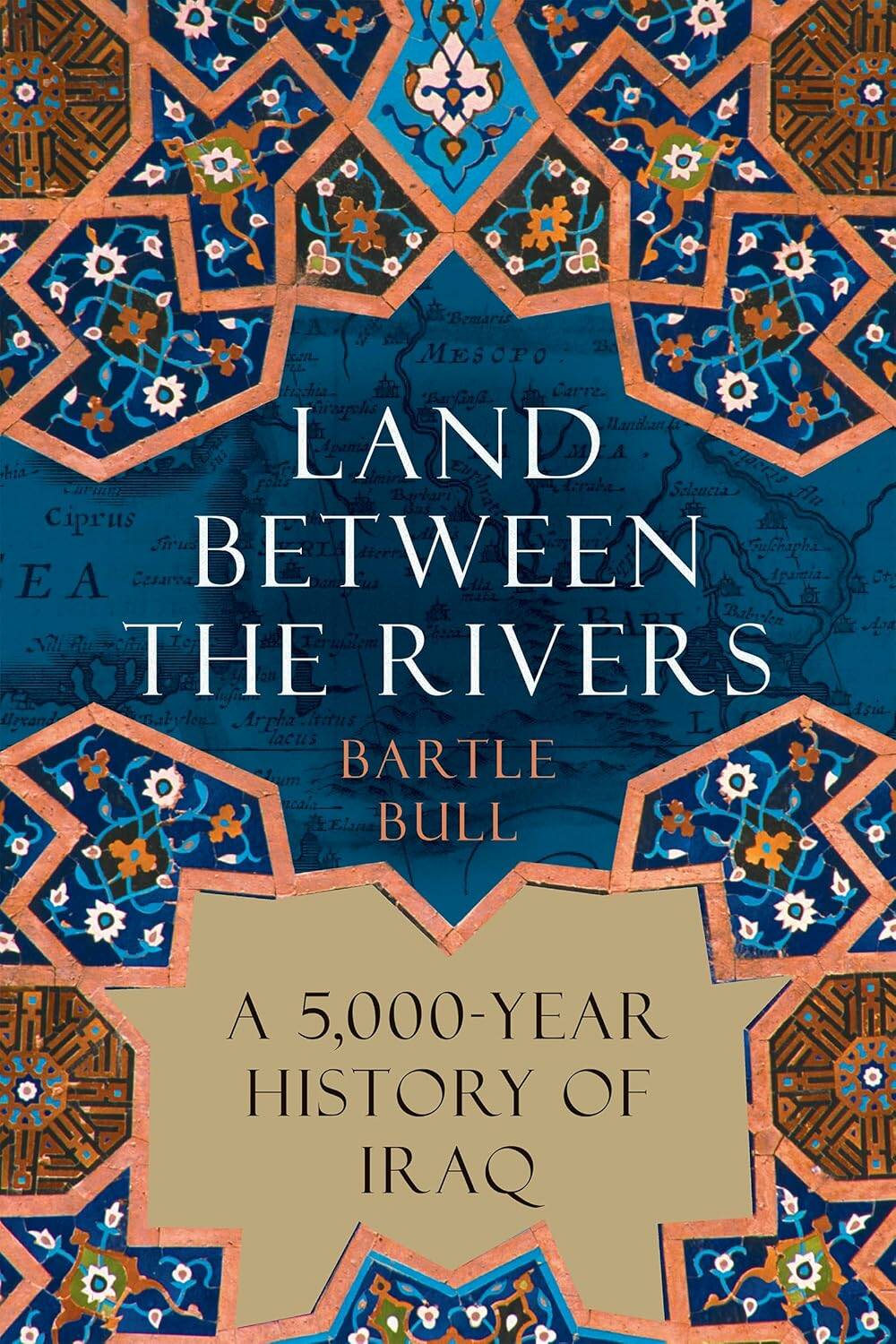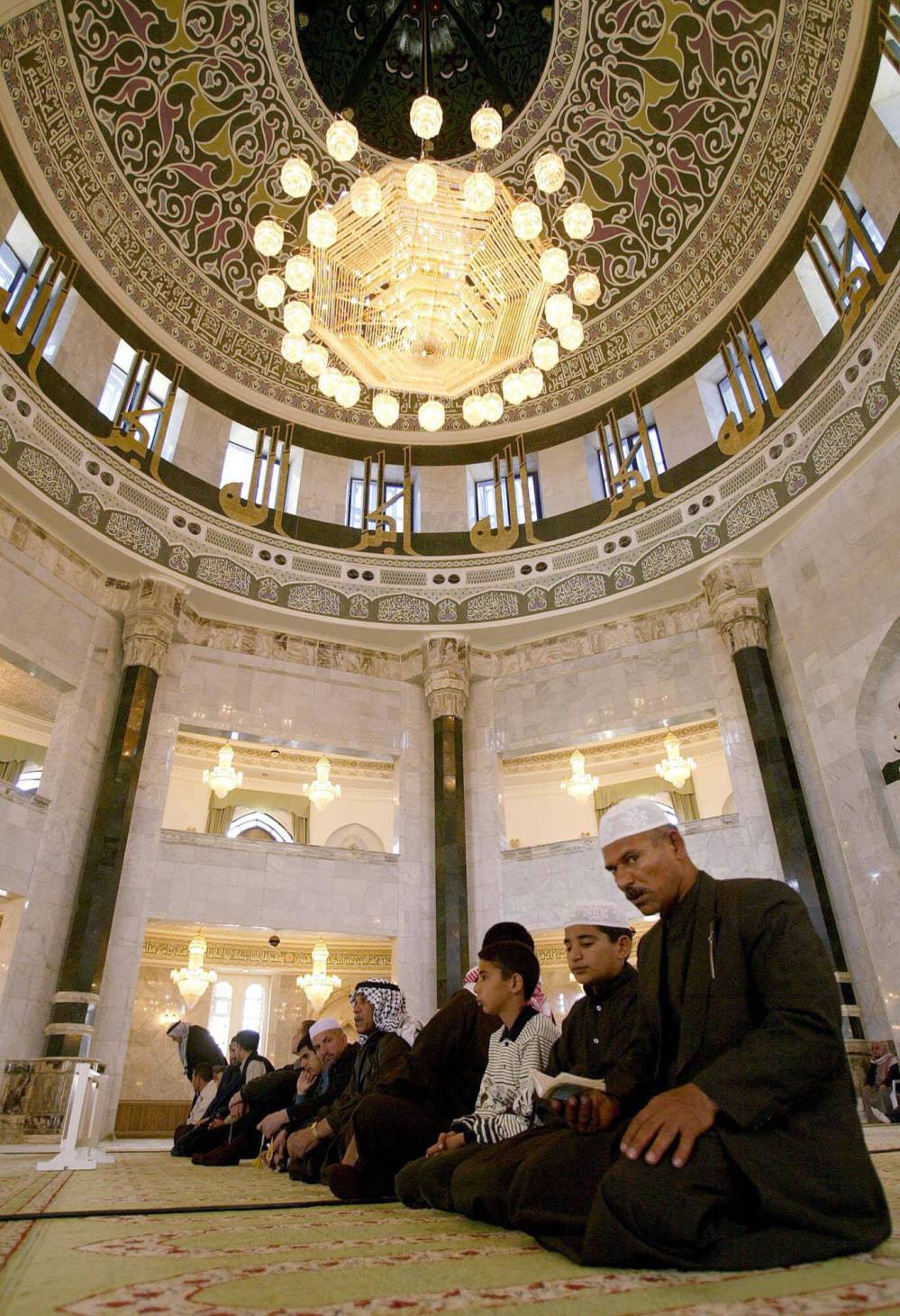The cradle of civilization
Vivid, deep dive into Iraq’s past combines popular history, academic research
Advertisement
Read this article for free:
or
Already have an account? Log in here »
To continue reading, please subscribe:
Monthly Digital Subscription
$0 for the first 4 weeks*
- Enjoy unlimited reading on winnipegfreepress.com
- Read the E-Edition, our digital replica newspaper
- Access News Break, our award-winning app
- Play interactive puzzles
*No charge for 4 weeks then price increases to the regular rate of $19.00 plus GST every four weeks. Offer available to new and qualified returning subscribers only. Cancel any time.
Monthly Digital Subscription
$4.75/week*
- Enjoy unlimited reading on winnipegfreepress.com
- Read the E-Edition, our digital replica newspaper
- Access News Break, our award-winning app
- Play interactive puzzles
*Billed as $19 plus GST every four weeks. Cancel any time.
To continue reading, please subscribe:
Add Free Press access to your Brandon Sun subscription for only an additional
$1 for the first 4 weeks*
*Your next subscription payment will increase by $1.00 and you will be charged $16.99 plus GST for four weeks. After four weeks, your payment will increase to $23.99 plus GST every four weeks.
Read unlimited articles for free today:
or
Already have an account? Log in here »
Hey there, time traveller!
This article was published 05/10/2024 (409 days ago), so information in it may no longer be current.
A history of Iraq is arguably pretty much the history of human civilization, or at least a good chunk of it.
And in point of fact, this history starts with the ancient Sumerian city of Uruk, the very “birthplace of writing,” as author Bartle Bull notes.
Iraq, the “land between the rivers” of the title, also historically known as Mesopotamia, is located between the Tigris and Euphrates rivers.
Hadi Mizban / Associated Press files
Followers of the ancient Mandaean religious, which follows the teachings of John the Baptist perform rituals along a strip of embankment of the Tigris River.
Bull, a veteran American Middle-East beat reporter and award-winning documentary filmmaker, has penned a comprehensive history of the region. His credentials include having spent four years on the ground in Iraq as a freelancer, “reporting and writing for newspapers and magazines during the 2004-2008 war there.”
Oddly, he stops short of the modern era and recent events. His treatment runs from circa 2700 BC to 1958, terminating with the coup that ended the Iraqi monarchy.
Odder yet, while there is an epilogue that briefly traces the rise of the Baath party and Sadam Hussein, the 1990 Iraqi invasion of Kuwait, the ensuing Gulf War that liberated Kuwait and the 2003 “Coalition of the Willing” invasion of Iraq that ended Hussein’s reign, it comes off as a very summary attempt to bring the book current.
The weakest part of the book is its early chapters, which are so dense it sometimes starts to feel like a grad-school lecture. But even here, Bull sometimes comes up with a sentence or paragraph that glows.
He seems to warm to his subject as the history unfolds. And overall, and despite the abundantly detailed research, he maintains a nice sense of forward movement, compelling the reader to keep turning pages.
Bull sometimes veers toward history as viewed through the lens of dynamic or seminal personalities.
He profiles Mohammed as the agent of broad currents of religious thought and political power, 16th-century Flemish diplomat Ogier de Busbecq’s as a negotiator with the Ottoman empire and 19th-century British diplomat and amateur archaeologist Austen Henry Layard as a proto-explorer. Their stories add a touch of engrossing biography while at the same time acting as keys to understanding the region’s history.

Land Between the Rivers
A history of Iraq has to include a history of Islam.
Bull’s portrait of Islam isn’t flattering. He chronicles its origins as a religion founded as an instrument of political control and power. According to Bull, Mohammed supplanted his initial precepts of extending kindness and tolerance to “people of the book” — Jews and Christians — with harsh and absolutist principles that have given sustenance to brutal jihadist groups and fundamentalist regimes down to today.
But Bull is nothing if not ecumenical.
He doesn’t much care for the early sundry sects of Judaism, Christianity and Zoroastrianism either. Although he never expressly says it, the reader is left with the distinct impression he pretty much views all major religions as constructs designed to control and punish populations.
Bull also devotes a lot of detail to tracing and explaining Islam’s major schism — the Sunni versus Shia divide born of “the succession struggles following Mohammed’s death.”
Iraq, in his telling, became ground zero in this still-ongoing theological war, in part because of its geographic location.
“Thus Iraq, the low alluvium between the plateau of the Arabs and the highlands of the Persians,” he writes, “the place where the two races met and mixed, would eventually find itself home to two distinct faiths claiming to be the true Islam and accusing each other of apostasy, the very worst of enormities.”

Jerome Delay / The Associated Press
Bartle Bull posits that Iraq became ground zero in an ongoing theological war in large part due to its geographic location.
This is popular history happily wed to academic research. While it emphasizes narrative, personality and vivid description, it also plunges deeply into scholarly detail and analysis.
Mostly Bull just wants you to think about Iraqi history and the Muslim world, and how we got to where we are today.
And he does a bang-up job of it.
Douglas J. Johnston is a Winnipeg lawyer and writer.


